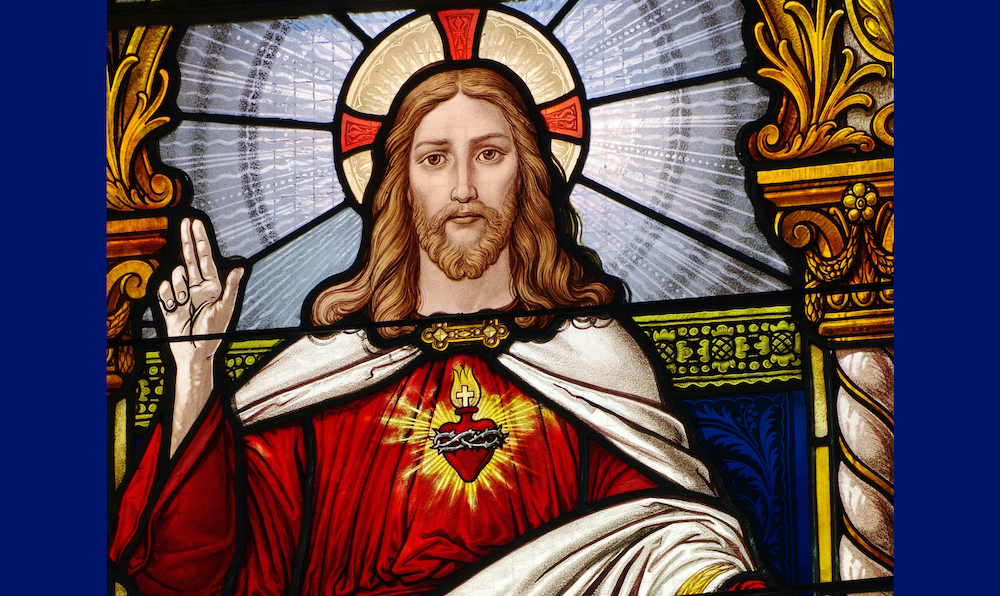Question:
Something I heard recently at Mass bothered me. The priest, reading from the Scriptures, said: “God raised Jesus from the dead.” While this statement doesn’t exactly dispute Jesus’ divinity, it certainly doesn’t affirm it — and it could easily be construed as a denial of Christ’s divine nature. (Marietta, Georgia)
Answer:
You heard the priest correctly. He may have been quoting from Luke in the Acts of the Apostles (2:23-24): “This man, delivered up by the set plan and foreknowledge of God, you killed, using lawless men to crucify him. But God raised him up, releasing him from the throes of death, because it was impossible for him to be held by it.”
Neither this quote — nor any scriptural passage — negates the divinity of Jesus. The belief of the Church is that the resurrection of Jesus involved all three persons of the Trinity.
Galatians 1:1 speaks of “God the Father who raised him (Jesus) from the dead”; Romans 8:11 attributes the resurrection to the Holy Spirit; and in the Gospel of John (2:19), Jesus — speaking of his body — says: “Destroy this temple and in three days I will raise it up.” So the act of raising Jesus from the dead was not accomplished by only one person of the Trinity but was the work of all three.
Question:
I recently learned that my ex-wife is going to remarry in a ceremony to be officiated by her sister, who is a minister of the Universal Life Church. My children and I have many questions as to how this affects us and our souls regarding heaven.
If we became one during our Catholic marriage ceremony, were later divorced and the marriage was never annulled by the Church, how will this affect our chances for paradise, and what scandal is brought about by this type of behavior?
Also, will my wife be considered in good standing by the Catholic Church, and can she receive holy Communion? I certainly understand the legal and civil consequences of all this, but it is the sacramental effects that concern me and my children. (Baltimore)
Answer:
I appreciate your question and your concern, but please put your mind (and especially your children’s minds) at ease. Your wife’s decision to remarry will have no effect on your children’s chances for heaven — or on yours. We are morally responsible only for our own behavior, and neither you nor your children will have prompted your ex-wife’s decision to remarry.
As you correctly understand, the Catholic Church’s view is that marriage is a lifelong commitment and covenant. Since your marriage was never annulled by the Church, your former spouse is not eligible in the Church’s eyes to remarry.
If she does so, her new marriage will not be recognized by the Catholic Church; therefore, she will not be in good standing in the Church and will no longer be eligible to receive holy Communion at a Catholic Mass.
You and your children do have a continuing obligation to your former wife and your children’s mother — and that is to continue to pray for her, that God will bless her with his grace and draw her more closely to himself.
Question:
I lost a close friend of mine in an accident. He was an Anglican; I don’t know his views about the Catholic teaching on purgatory, but I’ve been praying for him. I want to offer a Mass for him, just in case he is not yet in heaven. Will he benefit from that? (Uganda, Africa)
Answer:
Yes, he will certainly benefit — and if he’s already in heaven, the limitless fruits of the Mass will be applied to someone else who needs it. So you are right — and generous — to request a Mass for his intentions.
The Church’s Code of Canon Law says that “a priest is free to apply the Mass for anyone, living or dead” (Canon 901). That means a Mass can be requested for a person of any religion or none at all. (My own experience has been that people of many faiths are grateful when a Mass is celebrated for a deceased member of their family.)
Anglicans — along with most Protestants — generally do not believe in purgatory as a place of waiting and punishment for our sins. They feel this would mean that the sacrifice of Jesus was insufficient and inadequate for salvation. But many Anglicans do believe in a continuing process of growth and development after death.
The Episcopal Church’s 1979 Book of Common Prayer includes prayer for the dead, and the prayers during the Sunday eucharistic liturgy include intercessions for the repose of the faithful departed. (The Episcopal Church, based in the United States, is a branch of the worldwide Anglican Communion.)
The catechism in the 1979 Book of Common Prayer states: “We pray for (the dead) because we still hold them in our love, and because we trust that in God’s presence those who have chosen to serve him will grow in his love, until they see him as he is.”

